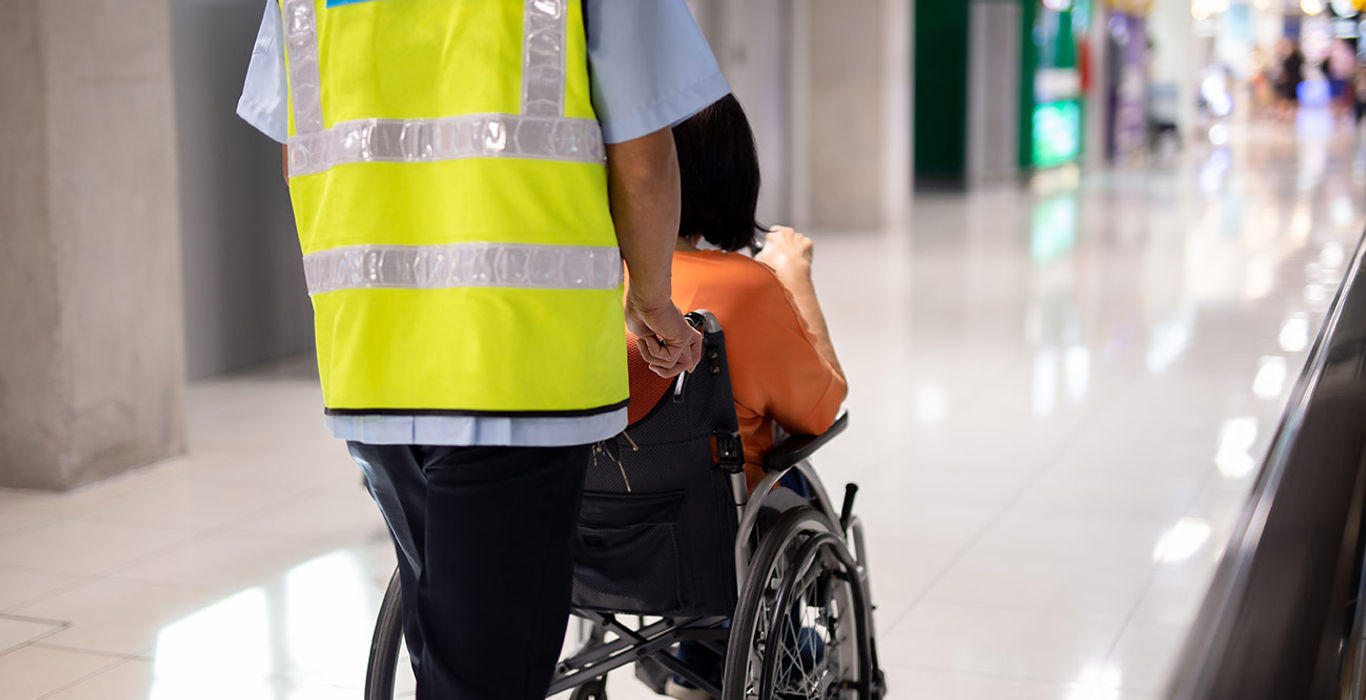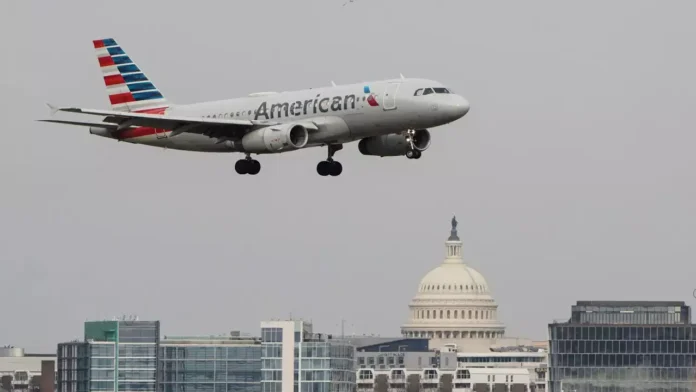In a significant development for air travel and passenger rights, American Airlines has been fined $50 million by the U.S. government for mishandling wheelchairs and failing to provide proper assistance to passengers with disabilities. The hefty penalty underscores the growing demand for accountability in the airline industry, particularly regarding the treatment of disabled passengers. This article delves into the reasons behind the fine, the underlying issues, and the measures American Airlines is taking to address the problem.
Why Was American Airlines Fined?
Between 2019 and 2023, American Airlines mishandled over 10,760 wheelchairs and mobility scooters, according to data from the U.S. Transportation Department. These incidents included damage to wheelchairs, failure to return them promptly after flights, and inadequate assistance to passengers requiring mobility support. The issue came to a head following three formal complaints from the Paralyzed Veterans of America, highlighting the ongoing mistreatment of disabled passengers by the airline.

A particularly damaging piece of evidence was video footage captured at Miami International Airport, where American Airlines workers were seen carelessly handling a wheelchair, causing it to flip over and skid across the tarmac. This incident, along with numerous other complaints, led the U.S. Department of Transportation to take action, resulting in the record-setting fine.
The Broader Issue of Wheelchair Mishandling in Airlines
While American Airlines was singled out for its mishandling of wheelchairs, the issue extends across the entire airline industry. Transportation Secretary Pete Buttigieg stated that American Airlines is “one of the worst offenders,” but emphasized that similar problems exist with other airlines. From 2019 to 2023, Southwest Airlines recorded over 11,100 incidents of wheelchair mishandling, while Spirit Airlines had the highest percentage of errors during that period.

The U.S. Department of Transportation’s investigation reflects the growing need to address how airlines handle passengers with disabilities. Wheelchairs and scooters are essential for the mobility and independence of disabled passengers, and damage to these devices or delays in their return can leave passengers stranded and vulnerable.
How Has American Airlines Responded?
Following the announcement of the $50 million fine, American Airlines was quick to respond, emphasizing the investments it has made to improve its services for disabled passengers. The airline stated that it has spent more than $175 million this year alone on infrastructure, training, and enhanced procedures to prevent further mishandling of wheelchairs and scooters. These investments include upgrading wheelchair-handling processes and training staff to better assist disabled passengers.
Additionally, American Airlines claims that it has reduced the mishandling of wheelchairs by 20%, with fewer than one in every 1,000 passengers requesting wheelchair assistance filing complaints. The company’s goal, according to its statement, is to ensure that wheelchair users experience a smooth and dignified journey, from check-in to landing.
The Legal and Financial Ramifications
The $50 million fine imposed on American Airlines is significantly higher than previous penalties for similar violations. For comparison, the previous record fine was just $2 million, imposed on United Airlines in 2016. The size of American Airlines’ fine reflects not only the large number of incidents but also the severity of the consequences for disabled passengers. These incidents not only inconvenience passengers but can also lead to injuries and significant disruptions in their lives.
While American Airlines has committed to improving its services, the fine sends a clear message that the federal government will not tolerate poor treatment of disabled passengers. Airlines are legally obligated to return wheelchairs and scooters quickly and in good condition, and to assist disabled passengers in navigating airports and boarding planes. Failure to do so violates both federal law and the basic principles of customer service.
The Role of the Central Consumer Protection Authority (CCPA)
The Central Consumer Protection Authority (CCPA) played a critical role in holding American Airlines accountable. After receiving thousands of complaints from passengers, the CCPA issued a show cause notice to the airline, citing concerns about misleading advertisements, unfair trade practices, and violations of consumer rights. American Airlines was given 15 days to respond to the CCPA’s notice, during which it provided evidence of its corrective measures and investments in improving its services for disabled passengers.

Despite these efforts, the U.S. Department of Transportation ultimately determined that the airline had failed to fully resolve the issue, leading to the $50 million fine. Moving forward, the CCPA and other regulatory bodies will likely increase their scrutiny of airline practices, particularly regarding how they handle passengers with disabilities.
What Does This Mean for American Airlines and the Industry?
The fine against American Airlines serves as a wake-up call for the entire airline industry. Airlines need to invest more heavily in ensuring that all passengers, including those with disabilities, are treated with dignity and respect. Failure to do so will not only result in fines but could also lead to damaged reputations and lost customers.
For American Airlines, the fine and the surrounding media attention present an opportunity to rebuild trust with its disabled passengers. By continuing to invest in training, technology, and infrastructure, the airline can improve its handling of wheelchairs and scooters and provide a more inclusive travel experience.
Conclusion: The Path Forward for American Airlines
While American Airlines has taken steps to address its shortcomings, the $50 million fine highlights the severity of the problem and the need for continued improvement. The airline has made substantial investments in its infrastructure and policies, but more work is needed to ensure that all passengers, especially those with disabilities, are provided with the care and assistance they deserve.
The case of American Airlines should serve as a cautionary tale for other airlines, demonstrating the importance of complying with federal regulations and prioritizing the needs of disabled passengers. Moving forward, it will be crucial for the airline industry to adopt more stringent measures to prevent mishandling of mobility devices and improve the overall travel experience for everyone.

